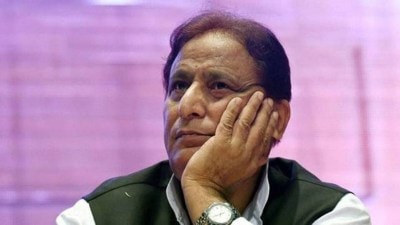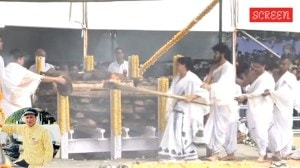Renault stages stunning turnaround after a bleak 1996 fiscal
PARIS, MARCH 14: Renault SA shares soared to all-time highs as investors applauded a dramatic turnaround in the car company's performance in...

PARIS, MARCH 14: Renault SA shares soared to all-time highs as investors applauded a dramatic turnaround in the car company’s performance in 1997. Renault reported better-than-expected net attributable profit of 5.43 billion francs ($886 million) after having lost 5.25 billion in 1996.
The results were well above consensus estimates of 4.04 billion according to Jacques Chahine Finance and 2.6 billion francs compiled by Edinburgh Financial Publishing.
The improvement was partly due to exceptional tax and capital gains in 1997 and heavy charges for 1996, including provisions to close the Vilvoorde assembly plant in Belgium. But the underlying results also confirmed the recovery, with operating results swinging to a gain of 2.03 billion francs in 1997 from a loss of 5.99 billion francs in 1996. Chairman Louis Schweitzer said the fairest comparison results from operations on a like-for-like basis excluding restructuring charges showed a year-on-year improvement of more than five billion francs. "The detailwas even more exciting than the headline figures. It’s quite a strong initial result from the cost-savings and products," said Salomon Smith Barney analyst John Lawson, who attended an analysts’ meeting with Schweitzer in London.
"I’ve come away this morning seeing more potential and a faster profile of improvement for the company than I saw before," Lawson said. The stock’s advance, combined with a rise in the share target price of several brokers, was certain to fuel speculation that the government would decide to reduce the state’s remaining 44 per cent stake in the company.
"People are feeling very upbeat, particularly for 1998. The 1998 figures are going to be quite good," said another analyst. Renault forecast further improvement in operating results and a breakeven for its truck business in 1998.
Its 1997 report marked the first tangible results of the cost-saving and industrial reorganisation programmes begun in early 1996 after the car division ran into the red. The results also reflected thecommercial success of Renault’s cars not just the Megane car family but also the new Master and Kangoo models and the Espace.
The Megane was the fifth best-selling car in Europe last year, and its innovative Scenic minivan version accounted for about half of all Megane sales. Schweitzer said the trend-setting Scenic will remain alone in its segment this year, with rival models not expected to hit the market before early 1999.
Renault will also get a boost from a recovery in the Frenchcar market, where sales are expected to rebound close to 10 percent after last year’s 20 per cent slide, although the European market is expected to be down slightly.
"They were in much more confident form than a year ago," Merrill Lynch analyst Stephen Reitman said. A year ago the company sparked an outcry in Europe with the announcement of the Vilvoorde plant closure and found few investors confident about its recovery forecasts.
"The results came in higher than expected, but it’s still an operating margin of one percent. We had expected 0.75 per cent," Reitman said. "The issue is competition in 1998 and 1999, not only from the Japanese but also from Volkswagen, GM and Ford, which are being very aggressive on product launches," he said.
Photos



- 01
- 02
- 03
- 04
- 05




























